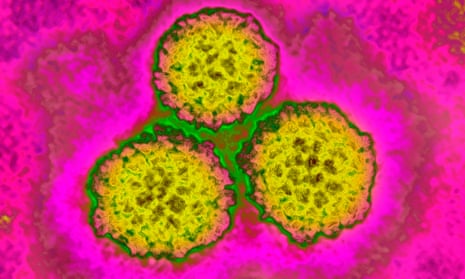Health officials will come under increasing pressure to extend vaccination against the cancer-causing human papilloma virus to young men. Doctors say new figures, to be released in a few weeks, will show that rates of head and neck cancers in men are now rising so quickly that it is imperative the policy is reversed.
At present, in Britain, only young women are offered the HPV vaccine, which protects them against cervical cancer. Boys are not given the vaccine, even though the virus is known to cause cancers of the head and neck in men in later life. Health officials have argued that administering the vaccine to boys is not cost-effective.
However figures being compiled by doctors are expected to show that the prevalence in men of oropharyngeal cancer – as the condition is known clinically – has soared. Rates are now extremely close to overtaking those of cervical cancer. In the past, rates lagged well behind those of cervical cancer.
Health experts say that an increase in oral sex is in part responsible for the spread of HPV and for the dramatic jump in neck and head cancers, which tend to have poor long-term survival rates.
“To be blunt, the case for giving the vaccine to boys as well as girls is now unequivocal as far as I am concerned,” said Professor Mark Lawler, of Queen’s University Belfast. “We have a chance to eradicate both these conditions – cervical as well as neck and head cancers – and we should not be hesitating.”
A vaccine that could prevent HPV infections was developed a decade ago, and from 2008 was used in the UK to inoculate schoolgirls against some cervical cancers.
Many other nations have since followed suit, though take-up has been patchy in some countries, such as Japan and Denmark. Here campaigns on social media in the past few years have rebuilt confidence in the vaccine after widespread – but unfounded – concerns about its safety.
In the UK, all schoolgirls are offered the vaccine from the age of 12 or 13, although there is an opportunity to be given the vaccine up to the age of 18. The take-up rate is more than 85%.
It is too early to say how cervical cancer rates have been affected by the vaccine programme, although these have been dropping in general thanks to improved NHS screening services.
By contrast, rates of head and neck cancers have continued to soar in men across the world. Its prevalence is three to four times greater than it was 20 years ago and in many nations it is now the fastest-increasing cancer.
As a result, many countries, including Australia and Canada, have decided to give the HPV vaccine to boys. “In total, 15 nations have now launched vaccination schemes for boys or have announced that they intend to launch one,” said Gillian Prue of Queen’s University Belfast.
By contrast, Britain has been slow to respond, although the Department of Health did recently announce that it was rolling out a programme in England later this year which would allow men who have sex with other men to be provided with the vaccine.
The situation was described as unsatisfactory by Professor Margaret Stanley of Cambridge University. “In the UK, there are now only two groups of people who cannot get the vaccine on the NHS: women who are over 18 and men who are straight,” she said.
“That is a crazy situation, and one that is grossly unfair. I would have thought those who are currently campaigning for equal rights for men and women throughout society would be jumping up and down about this. This is not an expensive vaccine, after all, and it will undoubtedly save lives.”
